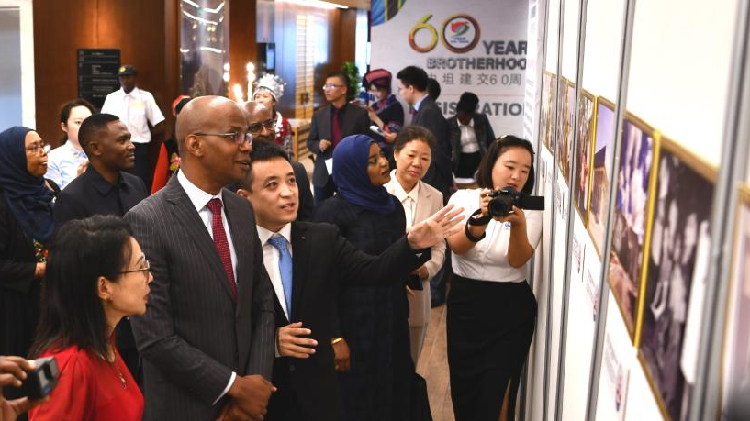60 Years of China-Tanzania Brotherhood: A Model for the Global South
Celebrating 60 years of camaraderie between China and Tanzania, this article highlights the enduring friendship and cooperation that have become a model for countries in the Global South. It explores the various dimensions of this relationship, emphasizing its significance in fostering solidarity and mutual support among developing nations.

As Tanzania commemorates 60 years of diplomatic relations with China, the recent agreement to rejuvenate the TAZARA railway, often referred to as the "Friendship Railway" or "Freedom Railway,” emphasizes the robust nature of their partnership. The railway was developed with Chinese assistance to support African liberation movements and aid regional growth. Running 1,860 kilometers, it traverses diverse terrains, linking Tanzania to landlocked Zambia. Since its completion in 1976, the railway has been essential for transporting goods and passengers across East Africa.
Musafiri Omari, a caretaker at the Chinese Experts Cemetery in Dar es Salaam, where many workers who helped build the railway are interred, reflected on their legacy, saying, “These men were heroes. Tanzania will never forget our Chinese brothers.” Omari, who has tended to the graves for more than a decade, recalled how the Chinese president honored these fallen workers during his visit in 2013, describing them as “builders of the monument of China-Tanzania friendship.”
Beyond TAZARA: Changing lives through infrastructure
The TAZARA railway is just one of many contributions from China to Tanzania’s development. Over the years, Chinese enterprises have been instrumental in transforming the nation's infrastructure. One of the latest projects is the Magufuli Bridge, anticipated for completion by the end of this year. At 520 meters, it will stand as Africa’s longest low-tower cable-stayed bridge, linking Busisi and Kigongo across Lake Victoria.
Local resident Ngonyani, who has resided in Mwanza for over two decades, views the bridge as revolutionary. “This bridge will cut travel time from over two hours by ferry to just minutes. It will transform how we live and work,” he noted. Once in operation, the bridge will benefit over a million people and enhance trade connections between Tanzania and its neighbors, including Rwanda, Burundi, and Uganda.
Further south, the Kilwa Fishing Port, set to be completed in 2025, aims to modernize Tanzania’s fishing industry. With an annual capacity of 60,000 tonnes, it will enhance storage and distribution, which have long been challenges for local fishermen. “Without refrigeration, much of our catch goes to waste,” lamented Saidi, a fisherman. “Once the port is built, we’ll be able to preserve our fish and sell to wider markets.”
Beyond these major projects, China has also prioritized enhancing the daily lives of Tanzanians. In 2024, a project spearheaded by the China Railway Construction Engineering Group connected 8,000 rural households to the power grid in Geita region, providing electricity to 127 villages, thereby powering homes, schools, and health facilities.
From securing clean water to improving healthcare
In 2023, the Arusha New Water Supply System, developed by the Power Construction Corporation of China, began providing clean water to over 400,000 residents. Emanuel, a mother of four, shared how the system has transformed her family's life: “Before, I had to spend extra money to buy clean water for my children. Now we have safe water right next to our home.”
Furthermore, Chinese contributions to Tanzania have encompassed vital healthcare assistance, which began in 1964. On August 27, 2024, Zanzibari President Hussein Ali Mwinyi honored the 33rd batch of the Chinese medical team with medals and certificates in recognition of their contributions to Zanzibar’s healthcare system. Over the past year, this team treated nearly 40,000 outpatients and conducted 20 large-scale free clinics on the islands. President Mwinyi commended the Chinese medical team for their dedication and hard work, particularly in advancing minimally invasive laparoscopic technology, allowing local doctors to make a “qualitative leap” in medical capabilities.
Jessica Kline contributed to this report for TROIB News












